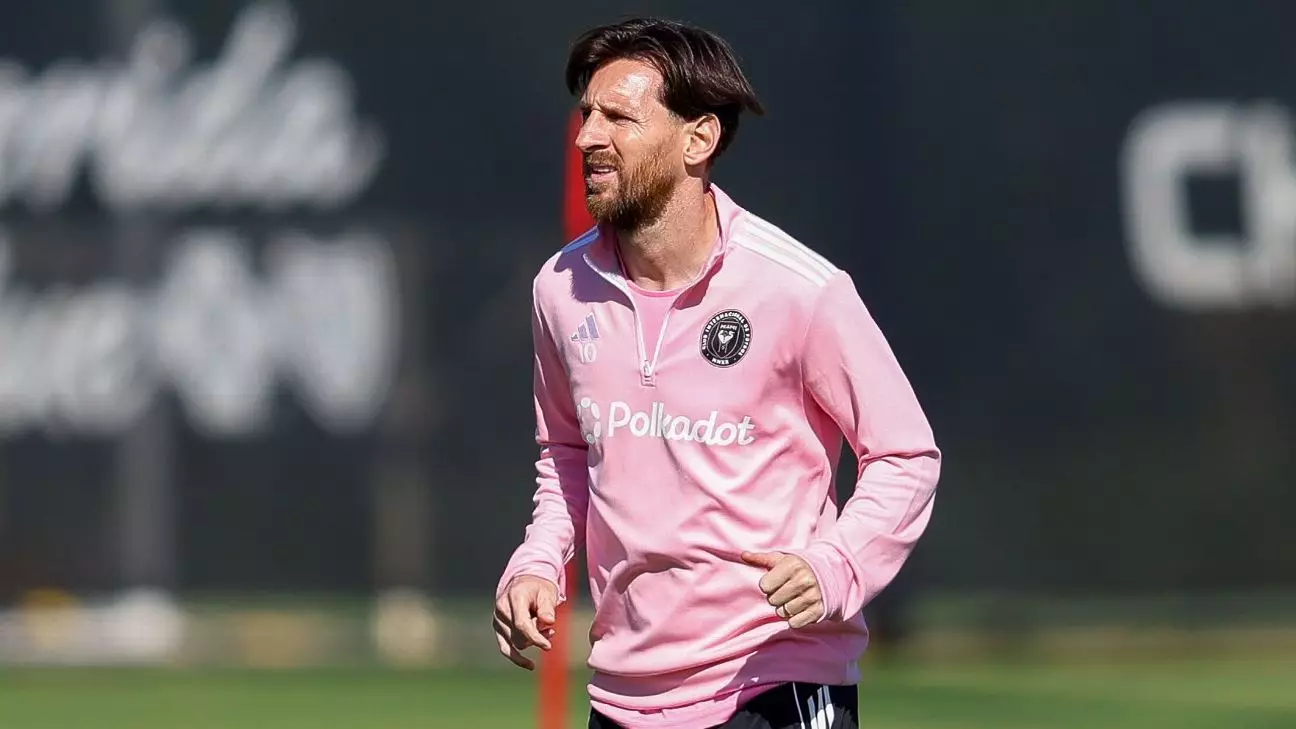Lionel Messi, the iconic forward recently signed by Inter Miami, did not join his team for their recent match against the Houston Dynamo. This notable absence, confirmed by insider sources, has sparked discussions about the management of player workload, especially for a player of Messi’s stature. Javier Mascherano, the new head coach for Inter Miami, made a calculated decision to rest the superstar due to a congested fixture schedule that had the team playing three games within a mere 10 days.
The decision underscores a critical balancing act in modern football: how to maintain player health and performance while also striving for team success. While fans undoubtedly look forward to watching their favorite player participate, the rigors of a packed schedule necessitate a more holistic approach to team management.
Inter Miami kicked off their 2025 campaign with high hopes, having initially faced Sporting Kansas City in the prestigious Concacaf Champions Cup. This was swiftly followed by their MLS opener against New York City FC, both demanding games that test the limits of even the most elite athletes. Given this context, Mascherano’s choice to rest Messi, who is 37 years old, seems both prudent and strategic.
It’s essential to note that Messi is not injured; in fact, he is anticipated to be back on the pitch against Cavalier FC in the upcoming Champions Cup. This factor speaks volumes about Mascherano’s foresight, focusing on the long-term health and performance of one of football’s legends rather than the immediate allure of having him play every single match. In the modern game, with its increasing focus on sports science and player welfare, the decision to rotate players, especially those who have achieved great heights like Messi, is often necessary to ensure sustained excellence throughout the season.
In a statement from the Houston Dynamo, the absence of Messi was addressed directly, as the team expressed its excitement in hosting Inter Miami. Houston promised that fans attending the match would receive complimentary tickets for a future game, a gesture aimed at maintaining good relations despite the missing star player. This highlights a fundamental aspect of sports: while elite players can draw significant attention and revenue, clubs must create an inclusive and enjoyable atmosphere for fans regardless of individual player statuses.
The Dynamo’s proactive communication is commendable. It not only mitigates disappointment among fans looking to witness Messi’s skills firsthand but also strengthens the community’s connection to the club. They offered an opportunity to experience more matchday excitement in the future, emphasizing that soccer is as much about the collective experience as it is about individual brilliance.
Mascherano’s comments following Messi’s absence reveal a deeper philosophical approach to player management. He articulated the importance of context in decision-making, suggesting that not every situation is the same, and each player requires a tailored approach. The need for player rotation to adapt to an unusually demanding schedule speaks to the difficult decisions coaching staff must often confront.
The decision to rest Messi also opens discussions about how teams can better allocate their resources. Relying on experienced players can be a double-edged sword; while they offer immense on-field value, overexertion can lead to burnout, injury, or diminished performance. This management strategy may yield long-term benefits for Inter Miami, particularly in key tournaments where success can have a profound impact on the club’s reputation and financial standing.
As the season progresses, Inter Miami faces several challenges moving forward, including maintaining momentum in a highly competitive league and performing well in prestigious tournaments. Messi’s eventual return will be welcomed, but the club’s ability to navigate the complexities of player management will play a critical role in their overall success.
This situation highlights the evolving nature of soccer management in a post-pandemic world, where player health is paramount. Coaches and teams must learn to balance the thrill of having star players on the pitch with the reality of ensuring these athletes can perform optimally over the course of a demanding season. As Inter Miami takes on the Houston Dynamo in the subsequent matches, the success of Mascherano’s decisions regarding player rotation will likely be scrutinized, making the dynamics of this season’s journey all the more captivating.

